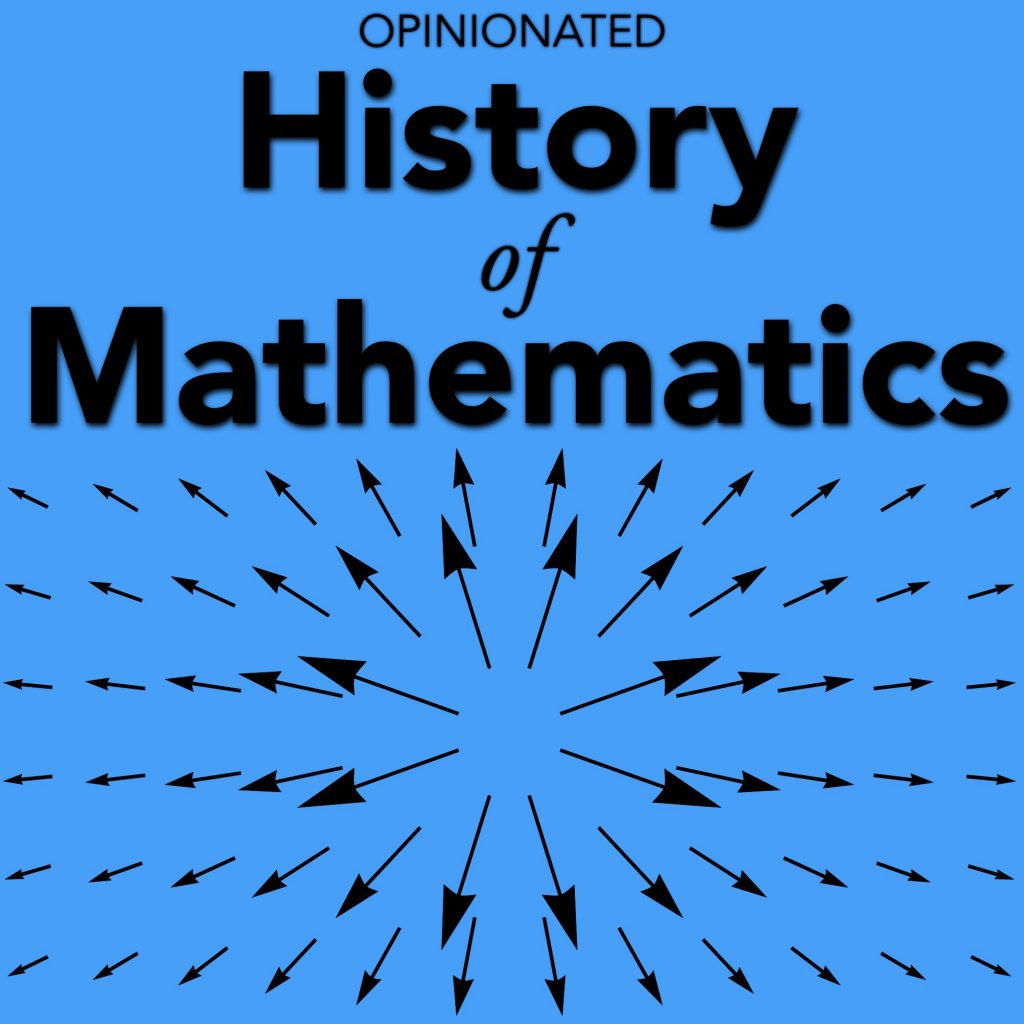Podcasting about: Opinionated History of Mathematics podcast
The Aperiodical 2020-06-17
In this series of posts, we’ll be featuring mathematical podcasts from all over the internet, by speaking to the creators of the podcast and asking them about what they do.
We spoke to Viktor Blåsjö, a historian of mathematics and assistant professor at the Mathematical Institute of Utrecht University, about his personal project – a maths history podcast.

Podcast title: Opinionated History of Mathematics Website: intellectualmathematics.com/opinionated-history-of-mathematics/ Links: Apple Average episode length: 35 minutes Recommended episode: Start from the beginning! Episode 1
What is your podcast about, and why did you choose to make it?
History of mathematics, with serious academic depth yet lively plot twists and refreshing contrarian interpretations. History of mathematics is my research field, but I love doing big-picture stuff and passionately argued hot takes: the kind of stuff you might sooner debate with a friend over a glass of wine than write up for a boring conference proceedings volume.
Academic publishing can be suffocating. Books like Kuhn’s Structure of Scientific Revolutions or Lakatos’ Proofs and Refutations could never be published today; they are too ambitious, too sweeping, too opinionated, too passionate to fit the ritualised blandness of modern journals. In short, they are too much fun. I believe podcasts are a great medium for bringing that kind of liveliness back to academic discourse.
Who is the intended audience for the podcast?
Curious people, thinking people, mathematicians, poets, dreamers; people who wish their mathematics education had been more humanistic, more reflective, more intellectualised, more packed with fascinating stories and stimulating debates.
What is a typical episode like?
Each episode is a kind of essay or lecture, making a sustained case for a particular thesis. I try to open with a thought-provoking question or conundrum, and then follow up with research-backed analysis.
I release a new 40-minute episode about once a month. The episodes are thematically connected to form sustained seasons. The first season was a comprehensive look at Galileo’s scientific work and what it tells us about the role of mathematics in the Scientific Revolution. We are now into the second season, which will trace the history and philosophy of geometry from Greek antiquity to the 20th century.

Why should people listen to your podcast?
It’s solid content that you won’t find anywhere else. There are not many historians of mathematics in the world, and few of those concern themselves with sharing the fascination of history with a broader audience.
I believe podcasts are here to stay as a medium. People have always wanted to follow the latest output of their favourite writers or thinkers. And having someone read to you while you are doing manual work, for example, has been common practice for hundreds of years. Podcasts are merely the latest stage of evolution in response to these timeless demands.
On the other hand, I think the current association of podcasts with interviews and lighthearted chit-chat will not persist in the long term. There’s a reason why almost no academic conferences, teaching, or books take the form of interviews. Interviews and aimless chatter are just not a very good way of conveying ideas or engaging with substantive content.
What are some highlights of the podcast so far?
The episode on Galileo’s Venus observations is a riveting whodunnit conspiracy theory. The episode on sunspots uses the geometry of rotating spheres to explain why Galileo indadvertedly (and erroneously) contradicted Copernicus. The episode on heliocentrism in antiquity gives a new interpretation of Aristarchus’s strange claim that the sun is 19 times further away than the moon.
A topic that leant itself well to a podcast was Galileo’s demonstration of the law of fall, which is inherently auditory. Since Galileo didn’t have any means of precision timing, he used our natural sense of rhythm to find the law of the velocity of a ball rolling down a slope. I reproduced the experiment in my living room using some wine glasses, so that you can hear the truth of Galileo’s law with your own ears in my episode on this.
My overall thesis in my Galileo episodes was that Galileo was a poor mathematician, and that many historical facts can be seen as stemming from this root cause, such as why Galileo tried to find the area of a cycloid by weighing paper cutouts, denied the physical reality of comets so he wouldn’t have to do math to them, jumped at the opportunity to gain fame through the telescope instead of through mathematical astronomy, never proved that projectile trajectories are parabolic, and got into hot water with the church.
What will your next season be about?
Our new season will be a history of human thought through the eyes of geometry. Geometry has somehow managed to always find itself at the heart of mankind’s worldview.
Throughout history, geometry has been like a shrewd Machiavellian mastermind who always had a seat in the inner circle and a finger in a wide range of philosophical developments that at first sight would seem to lie far outside its purview. Time and time again, geometry showed an astonishing ability to reinvent itself and remain relevant in surprising new ways whenever its previous claims to fame were fading. We will trace these twists and turns by which geometry remained larger than life for several millennia.
Mathematically too we will unravel many mysteries. For example, why did Greek mathematicians think it was a good idea to spend hundreds of years trying to make an angle the third of another, or a cube twice the volume of another, in dozens of different ways? What sin could be so grave that they imposed on themselves such a Sisyphean task? We will make sense of such baffling obsessions of the geometers of the past, as a historian should.